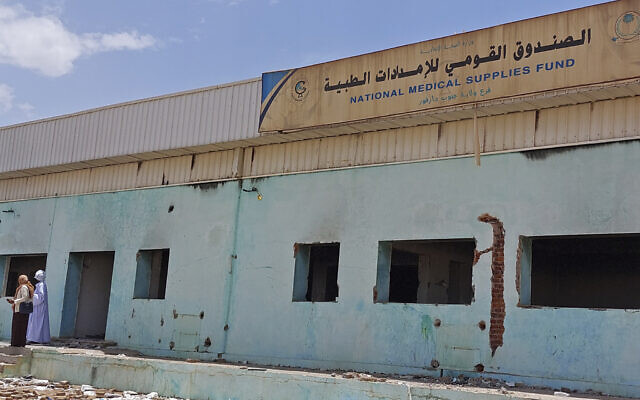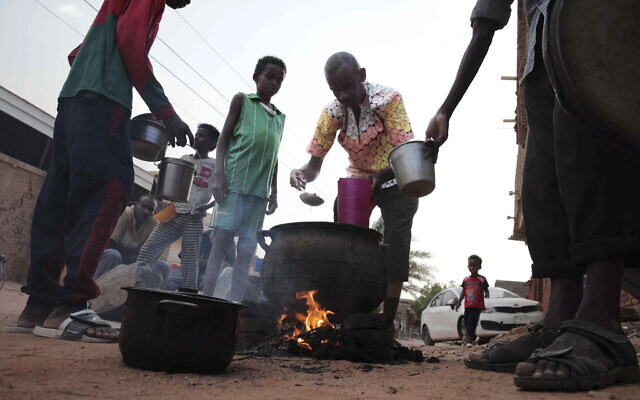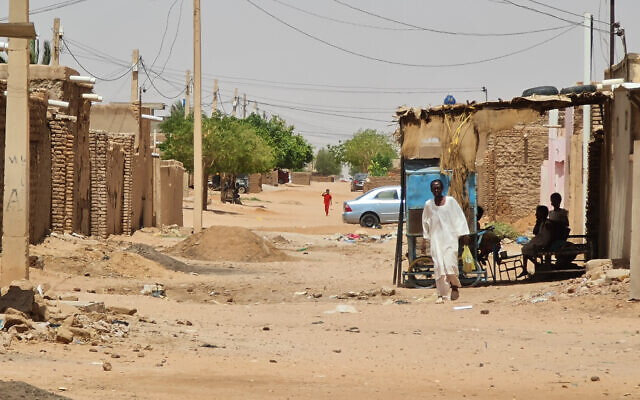UN urges international donors to help tackle ‘death and destruction’ in Sudan
Envoys from the Middle East and Europe meet to raise funds for country rocked by fighting, as UN says it only received 16% of needed funds since war broke out in April
Envoys from the Middle East and Europe attended a UN-hosted meeting Monday aimed at raising money to address Sudan’s deepening humanitarian crisis.
“The scale and speed of Sudan’s descent into death and destruction is unprecedented,” United Nations Secretary-General Antonio Guterres told the pledging conference in Geneva.
“Without strong international support, Sudan could quickly become a locus of lawlessness, radiating insecurity across the region.”
Sudan has been rocked by fighting for over two months as the military and the paramilitary Rapid Support Forces battle for control of the country. Sudan’s Health Ministry said Saturday that more than 3,000 have been killed in the conflict, which has decimated the country’s fragile infrastructure and sparked ethnic violence in the western Darfur region.
Representatives from Egypt, Germany, Qatar, Saudi Arabia, the African Union and the European Union met in Geneva to discuss helping Sudan. The UN says its emergency aid program launched after the war broke out on April 15 has received less than 16 percent of the required $2.57 billion in aid.
Around 24.7 million people, over half of Sudan’s population, are in need of humanitarian assistance, the UN says. Over 2.2 million people have fled their homes to safer areas elsewhere in Sudan or crossed into neighboring countries, according to the latest UN figures.
On Sunday morning, the country’s warring forces began a three-day ceasefire, the ninth truce since the conflict began. Most cease-fires have foundered.
The conflict has turned the capital, Khartoum, and other urban areas into battlefields. The paramilitary force, commanded by Gen. Mohammed Hamdan Dagalo, has occupied people’s houses and other civilian properties, according to residents and activists. The army, led by Gen. Abdel Fattah al-Burhan, has staged repeated airstrikes in densely populated civilian areas.
“The situation in Darfur and Khartoum is catastrophic. Fighting is raging with people attacked in their homes and on the street,” Guterres said.
“In little more than two months, two million people have been forced from their homes, seeking refuge in safer parts of Sudan or across borders. Close to half a million people have already crossed borders into neighboring countries.
“Before this conflict erupted, Sudan was already grappling with a humanitarian crisis. This has now escalated into a catastrophe affecting more than half the country’s people,” he said. “It is crucial to preventing the situation from deteriorating even further.”

The province of West Darfur has experienced some of the worst violence. with tens of thousands of residents fleeing to neighboring Chad. The Rapid Support Forces and affiliated Arab militias have repeatedly attacked the province’s capital, Genena, targeting the non-Arab Masalit community, rights groups say.
The province’s former governor, Khamis Abdalla Abkar, a Masalit, was abducted and killed last week after he appeared in a televised interview and accused the Arab militias and the paramilitary force of attacking Genena. The UN and Sudan’s military blamed the Rapid Support Forces for the killing. It has denied that.
Guterres said the only way to end the crisis was through a return to peace and the restoration of civilian rule via the transition to democracy.
Last week, Martin Griffiths, the UN’s top humanitarian official, described the situation in West Darfur as a “humanitarian calamity.”











